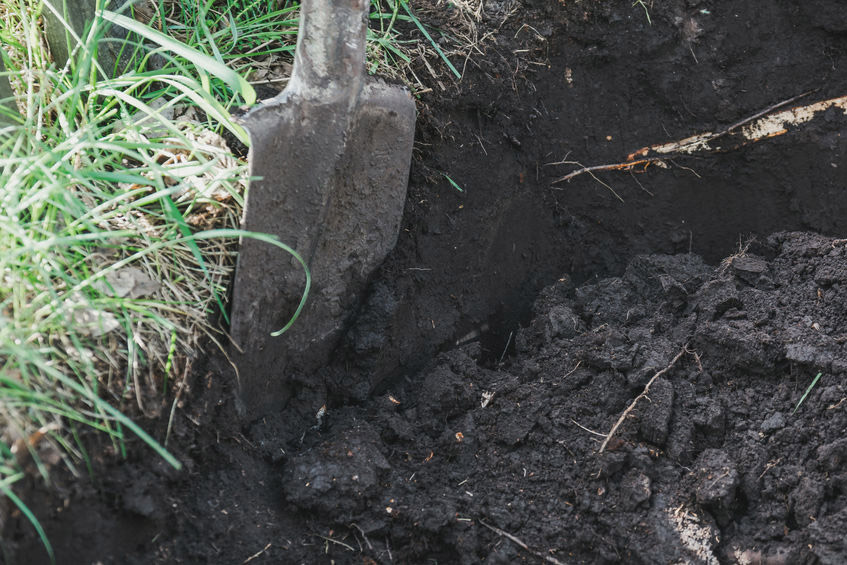Installing a French drain on a lawn allows rainwater to travel from where it fell to another area of the lawn with better drainage capabilities and access to more sunlight. While it is possible for homeowners to complete the project themselves, they will need to consider several factors to ensure a successful outcome.
Estimate the Amount of Soil and Gravel Needed to Dig
Before homeowners start digging an opening to install a French drain, they must contact a city administrator to come to the home and mark the spot of any utilities buried underground. City officials might also refer callers to 811, the number for the Before You Dig hotline. Identifying possible underground utilities or gas lines before digging is essential to prevent serious injuries.
Creating an opening for a French drain requires digging a ditch approximately 18 inches deep and 12 inches wide. For every foot dug into the ground, it uncovers a foot and a half cubic feet of soil. Topsoil normally weights about 100 pounds for every cubic foot.
That means homeowners will move 150 pounds of soil for every 10 feet uncovered. There is always the option of digging a trench by hand or renting a trenching tool by the day. The cost to rent a trenching tool varies by region but averages about $200 per day.
Homeowners need approximately .6 yards of gravel for every 10 feet of drainage uncovered. That amount of gravel usually weighs at least 2,500 pounds and can reach nearly 3,000 pounds. The cost of gravel averages $25 per cubic yard, which is in addition to the cost of delivery. People completing this project themselves also need to determine where to dispose of the soil they dug up to replace with gravel.
Why Hiring a Professional to Install a French Drain is a Better Idea
The upside of do-it-yourself French drain installation is that the costs are minimal. In many cases, the whole project should only take a few hours to complete. However, homeowners run the risk of damaging their lawn to the point where a professional needs to repair it.
Those who have never dug a trench or installed a French drain before may find that the project takes all day to complete rather than a few hours. Unfortunately, inexperience with this type of work can also lead to serious injuries.
When homeowners hire a foundation or excavating company to do the job, a representative should provide a free written estimate outlining all costs. Most contractors charge a flat fee for materials, parts, and labor. The estimate should also include the cost of filling the trench with topsoil and removing the uncovered soil from the property.
Hiring a professional ensures the safe and efficient installation of the new French drain. It also saves people the trouble of renting tools and contacting their city administrator to request marking of underground utilities. Homeowners immediately reap the benefits of a French drain and can relax knowing that an experienced professional installed it correctly.

